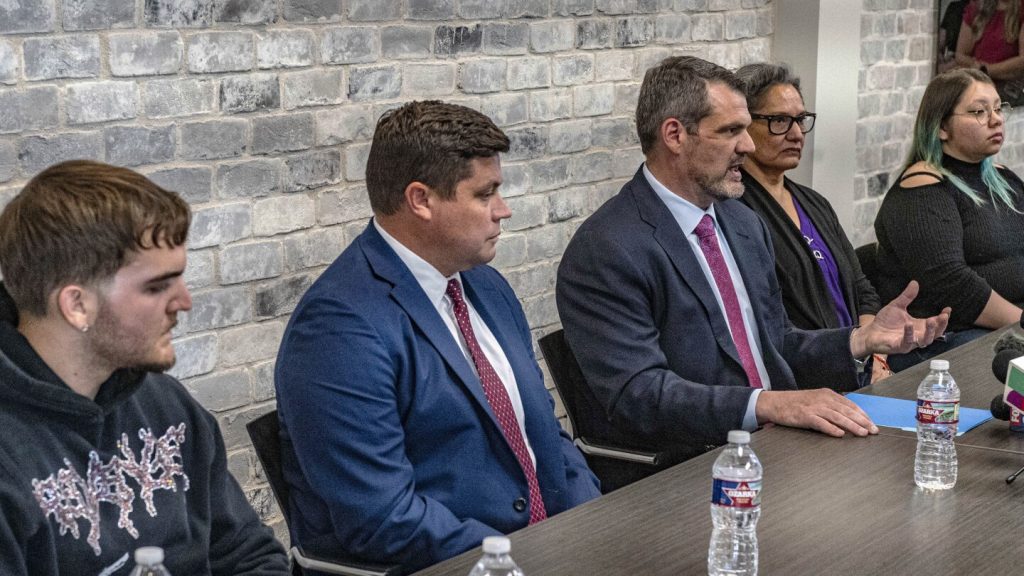Families of several patients who passed away while waiting for a liver transplant are seeking answers amidst accusations of manipulation of the waitlist by a Houston doctor. Memorial Hermann-Texas Medical Center is currently investigating after discovering inappropriate changes made by a doctor in the national database for organ transplants. The hospital has suspended its liver and kidney programs as a result of these findings. Susie Garcia, who lost her son Richard Mostacci earlier this year, expressed her frustration and trust in the medical system during a recent news conference.
Relatives of the deceased patients have retained legal counsel and filed for a temporary restraining order to prevent Dr. Steve Bynon, the accused doctor, from deleting or destroying any evidence related to the case. Attorney Tommy Hastings raised concerns about possible personal animosities influencing Bynon’s decisions, leading to potential harm to patients. Meanwhile, UTHealth Houston has defended Bynon, describing him as an exceptionally talented and caring physician with high survival rates. Bynon, who is contracted to Memorial Hermann, has not responded to inquiries regarding the allegations.
The inappropriate changes in the national organ transplant database were limited to the liver program, but both liver and kidney transplant programs were suspended by Memorial Hermann due to Bynon’s shared leadership over both. The U.S. Department of Health and Human Services has initiated an investigation into the matter, although no additional comments have been provided by the involved parties. A lawsuit has been filed against Memorial Hermann and UTHealth alleging negligence in the death of John Montgomery, who died while on the waitlist for a liver transplant. The hospital’s waitlist mortality rate was higher than expected, with 19 deaths recorded in a two-year period compared to the predicted 14 deaths.
Publicly available data from the Scientific Registry of Transplant Recipients shows that the hospital’s waitlist mortality rate was higher than expected, with 19 deaths recorded in a two-year period compared to the predicted 14 deaths. The first-year success rates for adults who received transplants at the hospital were 35% better than national outcomes, suggesting a discrepancy in outcomes for patients who were able to receive transplants. Despite the ongoing investigations and legal actions, the families of the deceased patients are still seeking justice and accountability for their loved ones who were denied potentially life-saving liver transplants. The situation has raised concerns about the integrity of the organ donation and transplant system, emphasizing the critical need for transparency and oversight to prevent similar incidents in the future.


